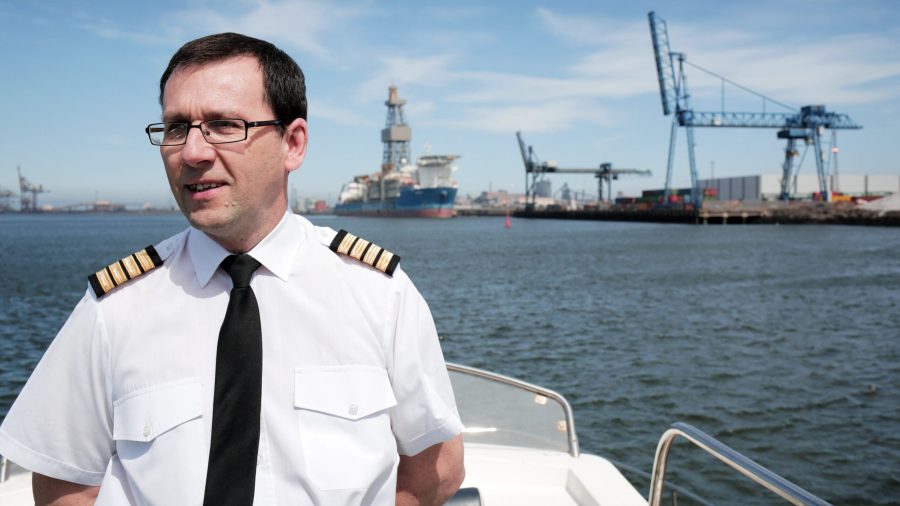
PD Ports has announced a new partnership with the Port of Rotterdam, Europe’s largest port, to deliver digitalised solutions that will improve efficiencies and support the future growth of the River Tees.
Having recently launched its bold ambition to make the River Tees the UK’s most successful port region by 2050, PD Ports is accelerating its pace of digitalisation with the development of a Port Community System (PCS).
Working in collaboration with the Port of Rotterdam, PD Ports has started the first phase of developing this critical infrastructure, aligned with Teesport’s wider development plans to become a ‘smarter port’; reducing the need for and reliance on personal interaction and paper-based transactions.
PD Ports’ CEO, Frans Calje, explained how the partnership with the Port of Rotterdam will ensure that Teesport remains in a prime position to support the smooth flow of goods transiting the UK post-COVID and post-Brexit.
“By working with our colleagues in Rotterdam we can build direct links with Teesport’s biggest single supply route, connecting not only PD Ports but the entire community on the river to the largest port in Europe,” said Frans.
“In utilising Rotterdam’s developed PCS at Teesport, companies managing the flow of cargo between the UK and the Netherlands – for the Netherlands directly or the wider EU market – will have the convenience of using the same system for goods moving in both directions.
“This is an industry-leading initiative that highlights PD Ports’ unparalleled focus on customer service whilst demonstrating our proactive and joined-up thinking that will ensure the River Tees remains at the forefront of UK-EU trade, offering customers the most reliable and resilient connections between UK and EU markets.
“The introduction of the Port Community System will provide a strong platform of continued growth in the future, delivering benefits to the Port, the Tees Valley region and the North of the UK.
“We are looking forward to continuing to develop our relationship with the Port of Rotterdam as we embark on this multi-phase project towards becoming a smarter port.”
As Statutory Harbour Authority of the River Tees, PD Ports is responsible for vessel traffic management and ensuring the safe navigation of vessels as they access Teesport. The implementation of this system will provide the river community with a single, dynamic source of information including live shipping movements, meteorological and environmental data, as well as providing the ability to initiate vessel visits to Teesport, all in one platform.
During its research phase, the port operator held consultations with river users ahead of committing to the PCS of choice, with key partners Svitzer Marine, Graypen and ConocoPhillips all trialling the system prior to launch.
Dan Heritage, Agency Manager at Graypen, said he is keen to continue working with both PD Ports and Port of Rotterdam as the system develops.
“From the moment I heard about the Port Community System I was keen to engage with PD Ports, and the developers, to give guidance from our perspective as Port Agents. I could see from the outset how promising the potential is for implementing such a system at Teesport.
“As a busy agent at the centre of port activities at Graypen Ltd, it was important to me that the system not only works to streamline the operations and communications within Teesport, but also provided a hub for port activity where users from various services around the river could interact and work together, using technology to our advantage.
“It’s been exciting to be a part of the process and it is great to see aspects of the PCS really taking shape as certain aspects become live. I look forward to continuing to work with PD Port and the Port of Rotterdam in implementing a system which will be of real benefit to the entire port community.”
In 2019, the Port of Rotterdam moved nearly 470 million tonnes of cargo through its 42km waterway in the Netherlands. René van der Plas, Port of Rotterdam Director, explained how the new partnership with PD Ports will be beneficial for both parties.
“With the UK as one of the most important trade partners in Europe and approximately 40 million tonnes of cargo heading there from Rotterdam each year, it makes sense to try and optimise the supply chains and the transportation between the two ports,” Van der Plas said.
“That’s also where digitalisation is very important, because by making things digital you will enhance transparency and efficiency,” he added.